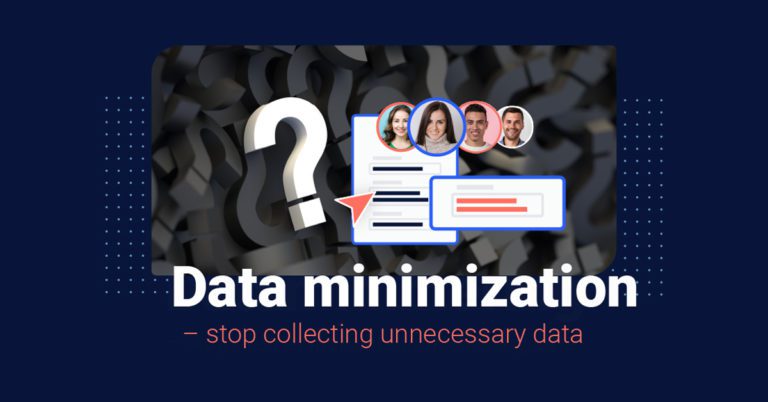Data Minimizing – Recruitment Must Have
Do you consciously consider how much data you need in your recruitment process? Or do you have a “rather too much data than too little data”-attitude? You may want a new approach to avoid clashing with GDPR.
Enthusiastically, you hit the publish button on your new job ad, ready to receive applications from exciting candidates. But you might want to hold your horses and reconsider what kind of data you want your candidates to share.
In other words, don’t ask applicants for their exam papers, criminal records, etc., immediately. Wait until you have reduced the pool of candidates. Doing so minimizes the risk of violating the GDPR, which dictates that you can only collect and store necessary data.
This way of collecting only necessary data is called data minimizing. But what does data minimization mean, and how do you go about it? Data minimizing is the act of reducing the amount of data that you obtain and store. It means only asking for the data that you actually need in relation to the specific recruitment. Learn more about GDPR by checking what regulations apply in your country.
How to Minimize Data
Start Over – Scratch the Old Application Form
The most straightforward way to ensure that you only ask for the data you actually need is to start over. Ask yourself what data is essential from your applicants in the first step of the recruitment process.
Only Get the Most Relevant Information
In most cases, you only need basic information such as name, phone number, email address, cover letter, and resume in the first round of the recruitment process. Do you need to ask specific questions regarding your educational background? You can probably find this in their resume. Do you need the applicant’s address? Chances are that you don’t. At least not until you’re ready to draw up a contract, which means it’s unnecessary during the first round of recruitment.
Ask For Additional Information Later
If you do need the applicant’s specific address, you should, by all means, ask for this. The actual exercise of data minimizing is to be more conscious about what information you ask for and what purpose does the information serve? You might not need to ask for an address immediately, so putting this off until the next round means ensuring that you only ask for addresses to the extent that it is relevant.
Avoid Unlawful Questions
Don’t forget that, for instance, in Denmark, it’s illegal to ask candidates any questions regarding the following:
- Age
- Religious practices
- Sexual orientation
- Political beliefs
- Ethnicity
When you use HR-ON Recruit as your recruitment platform, you have the best conditions to make sure you ask the right questions in your recruitment process. We have made it easy for you and prepared an application form that ensures you avoid all unnecessary questions while keeping in line with the GDPR. The form is easy to adapt, so it fits your specific needs.
Want to learn more about HR-ON’s products? Get your demo today and see how we can help you save time and elevate your work day.

